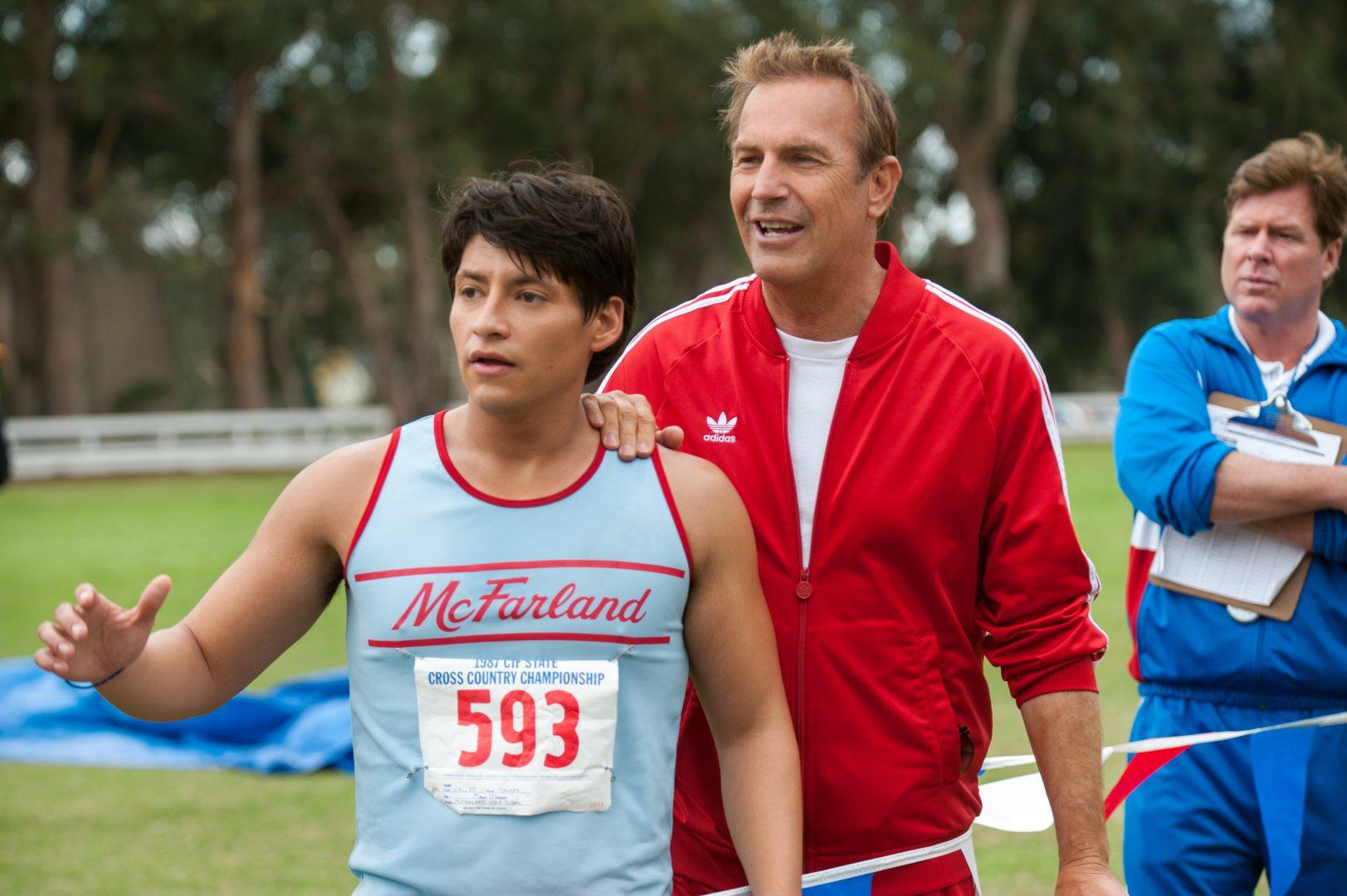Academy Award-winning actor Kevin Costner stars in the upcoming film, “McFarland, USA” based on the 1987 state champion cross country team from the Central Valley high school.

Costner portrays the real-life coach, Jim White, who helped the team —made up predominantly of Hispanic males — overcome local social issues to win a state title. The film opens nationwide on Feb. 20.
Costner and coach White recently sat down for a college conference Q&A to talk more about the film and the story’s impact on the local community.
Q: What does it mean to you and the community of McFarland to have this film made and this story told on the big screen?
Jim White: It means an awful lot to the community of McFarland, myself included… what it’s done for the community actually is we now have a new city logo. The old logo “Heartbeat of Agriculture” is obsolete, and we went with a new one that a high school girl came up with in a contest and it’s a runner, [a] silhouette of a runner running through the field and underneath, it says, “Tradition, Unity, and Excellence.” And this has been accepted by our city and our school, and everybody else is really involved in this and just happy.
Q: This question is for Kevin Costner. What originally drew you to this project? Did you have any knowledge of this tale before reading the script for this film? Did you meet with Jim White before signing on for the role?
Kevin Costner: Well thanks for the question…but I remember 15, 20 years ago, I actually don’t know how long, but I read a story about McFarland in “Sports Illustrated” about coach White, and I was just thinking, ‘Wow, what a great story!’ And obviously, you know, once I finished the article, I didn’t think anymore about it until again that same amount of time rolled away, and I was approached to be in this movie, and I thought, ‘Wait a second, I — I know this story.’ And what was maybe even more interesting, maybe interesting or not to you, but I’d actually played McFarland in high school.
I lived, for a short amount of time, in the Central Valley, which is where all our agriculture is in California, and so in high school going to a little high school in Visalia, California, I played McFarland baseball so, I’ve been very — it’s funny how this story I read a long time ago, I suddenly was in the movie and then I realized, my God, I’ve actually played against this community. So it’s a big full circle for me and for Jim. I think I met Jim a couple of days before we started filming, but we would, Jim would often come to the set, and we would have a time to either talk with him or his wife and just walk around.
And it was always more just about life in general. Things would circle back to McFarland and his own history there and the boyhood. It was general conversation that you would have with somebody that was, just everyday stuff which in a way, was just very, it was very pleasant.
Q: What do you want audiences to take away from the film?
JW: I think from my part, one of the real main feelings that I have are the feelings that Kevin Costner left with the town when he chose to stay there because he truly showed a love for the kids and a love for the town and the community, and I think you’re going to get that feeling when you see it and — and that’s a wonderful feeling. And the other part of it is really, really true to life [the] hardships that the kids have to go through working in the fields. That is so, so important to understand what they’re really going through. And then to come back and have a successful life that they’re having.
KC: Yeah, you’re asked this question in different ways, but it comes down to sometimes a very basic thing, which is you want people to get their money’s worth when you watch a movie. And what does that actually mean? Because films are emotional experiences. They’re not intellectual, they’re emotional. And what I think what we hope and when movies are working at their very best, they become about moments that you’ll never, ever forget, and we carry the moments of films throughout our whole life.
And I think the things that get set in McFarland, seeing these people firsthand, up close in these fields that they’re simply working there, these incredible hours through very difficult weather conditions, every day of their life for one reason and one reason only, to advance their children and to give their children a better opportunity.
So at it’s very core, this is not a movie about running. It’s not about cross country. This movie is really about the American dream, and the American dream in McFarland is alive and well. There’s nothing more American than a parent trying to make their life better for their children.




